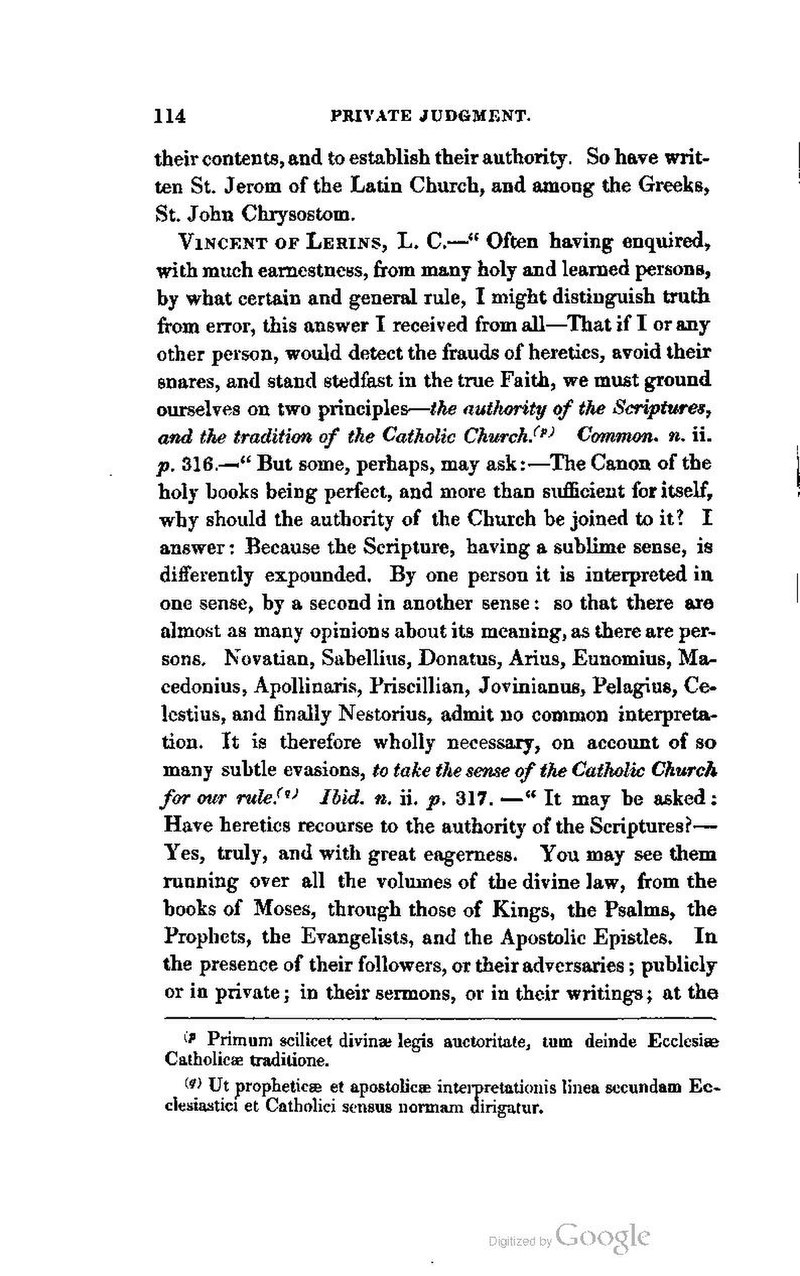their contents, and to establish their authority. So have written St. Jerom of the Latin Church, and among the Greeks, St. John Chrysostom.
VINCENT OF LERINS, L. C.—“ Often having enquired, with much earnestness, from many holy and learned persons, by what certain and general rule, I might distinguish truth from error, this answer I received from all That if I or any other person, would detect the frauds of heretics, avoid their snares, and stand stedfast in the true Faith, we must ground ourselves on two principles—the authority of the Scriptures, and the tradition of the Catholic Church.cp) Common. n. ii. p. 316.—“ But some, perhaps, may ask:-The Canon of the holy books being perfect, and more than sufficient for itself, why should the authority of the Church be joined to it? I answer: Because the Scripture, having a sublime sense, is differently expounded. By one person it is interpreted in one sense, by a second in another sense: so that there are almost as many opinions about its meaning, as there are persons. Novatian, Sabellius, Donatus, Arius, Eunomius, Macedonius, Apollinaris, Priscillian, Jovinianus, Pelagius, Celestius, and finally Nestorius, admit no common interpretation. It is therefore wholly necessary, on account of so many subtle evasions, to take the sense of the Catholic Church for our rule.9) Ibid. n. ii. p. 317. It may be asked : Have heretics recourse to the authority of the Scriptures?Yes, truly, and with great eagerness. You may see them running over all the volumes of the divine law, from the books of Moses, through those of Kings, the Psalms, the Prophets, the Evangelists, and the Apostolic Epistles. In the presence of their followers, or their adversaries; publicly or in private; in their sermons, or in their writings; at the
